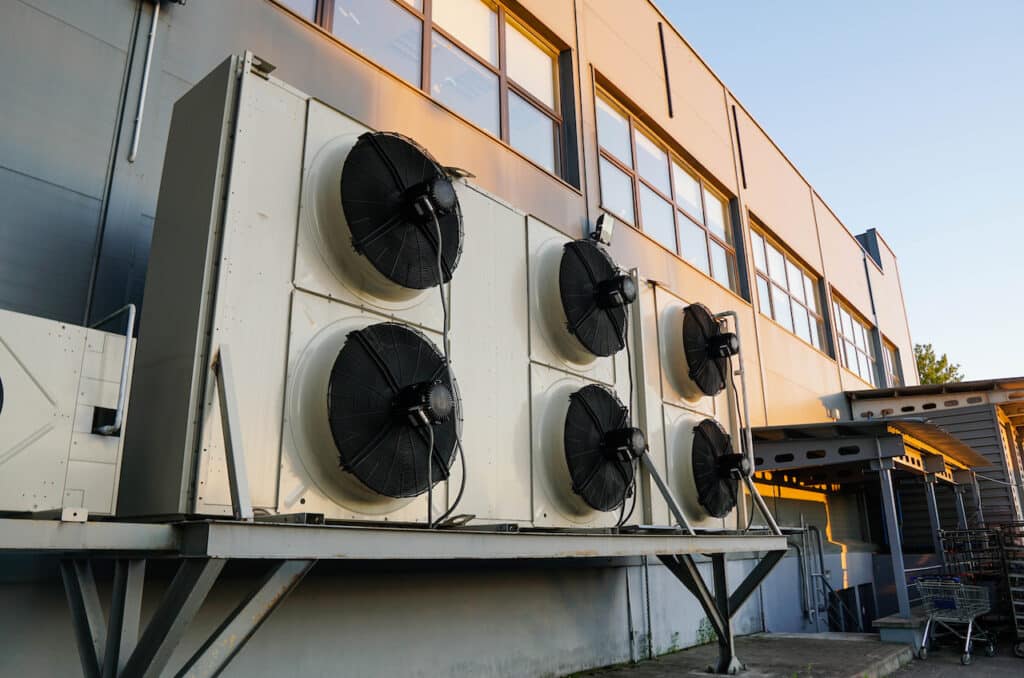
In the world of HVAC and industrial cooling, operational costs are a significant concern for businesses. Air-cooled chillers, particularly those incorporating advanced technologies like microchannel condenser, are emerging as a cost-effective solution. These chillers offer a range of benefits that contribute to reduced operational expenses, making them an attractive option for various applications. This article examines how air-cooled chillers are achieving cost reductions and enhancing efficiency.
Advanced Heat Exchange Technology
Efficiency of Microchannel Condensers
Microchannel condensers play a crucial role in enhancing the efficiency of air-cooled chillers. These condensers feature numerous small channels that increase the surface area available for heat exchange. This design allows for more efficient heat dissipation, reducing the energy required to cool the refrigerant. The high thermal conductivity of materials used in microchannel condensers, typically aluminum, further boosts efficiency by ensuring rapid and effective heat transfer.
Reduced Refrigerant Charge
The innovative design of microchannel condensers also results in a lower refrigerant charge. This reduction not only decreases the environmental impact but also cuts down on the costs associated with refrigerant purchase and management. A lower refrigerant charge means less frequent refilling and fewer leak-related issues, translating into direct savings for businesses.
Energy Efficiency Improvements
Variable Speed Technology
Air-cooled chillers equipped with variable speed compressors and fans can adjust their operating speeds based on the cooling demand. This flexibility ensures that the chiller only uses as much energy as necessary, significantly reducing electricity consumption during partial load conditions. The result is a substantial reduction in energy costs, as the chiller operates more efficiently and avoids the waste associated with constant-speed systems.
Intelligent Control Systems
The integration of intelligent control systems in air-cooled chillers allows for precise monitoring and adjustment of operating parameters. These systems use real-time data to optimize performance, ensuring that the chiller runs at peak efficiency. Automated controls can also schedule maintenance and detect potential issues before they become costly problems, further enhancing operational cost savings.
Maintenance and Durability
Simplified Maintenance Procedures
One of the key advantages of air-cooled chillers is their relatively simple maintenance requirements. Unlike water-cooled systems, air-cooled chillers do not need cooling towers, extensive piping, or water treatment systems. This simplicity reduces the complexity and frequency of maintenance tasks, resulting in lower labor and material costs. Regular cleaning of microchannel condensers and basic inspections are often sufficient to keep the system running efficiently.
Enhanced Durability
Microchannel condensers are designed to withstand harsh environmental conditions, providing superior durability compared to traditional coil designs. The corrosion-resistant properties of aluminum and the compact structure of microchannel coils reduce the likelihood of damage and extend the lifespan of the equipment. This durability minimizes the need for costly repairs and replacements, contributing to long-term operational savings.
Water and Environmental Savings
Elimination of Water Use
Air-cooled chillers eliminate the need for water in the cooling process, unlike their water-cooled counterparts. This elimination results in significant water savings, which is especially beneficial in regions where water resources are scarce or expensive. The absence of water usage not only reduces operational costs but also aligns with sustainability goals, providing an eco-friendly cooling solution.
Reduced Environmental Impact
The use of microchannel condensers in air-cooled chillers also contributes to a reduced environmental impact. These condensers support the use of low-GWP (Global Warming Potential) refrigerants, minimizing greenhouse gas emissions. By adopting environmentally friendly technologies, businesses can comply with regulations and potentially benefit from incentives, further reducing operational costs.
Operational Flexibility
Scalability and Modular Design
Air-cooled chillers are available in various sizes and configurations, allowing businesses to choose a system that fits their specific needs. The modular design of many air-cooled chillers enables easy scalability, meaning additional units can be added as cooling demands grow. This flexibility ensures that businesses only invest in what they need, avoiding unnecessary expenditures and optimizing their cooling infrastructure.
Conclusion: A Smart Investment
Air-cooled chillers, particularly those utilizing microchannel condensers, offer a range of benefits that significantly reduce operational costs. From enhanced energy efficiency and simplified maintenance to water savings and environmental advantages, these systems provide a cost-effective solution for modern cooling needs. By investing in advanced air-cooled chiller technology, businesses can achieve substantial long-term savings and improve their overall operational efficiency.



